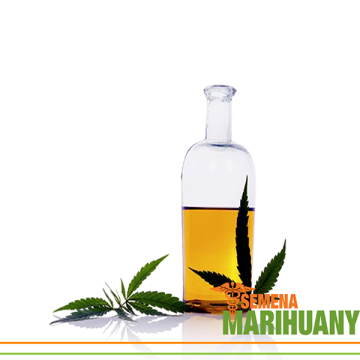4 CBD Myths

- Dr. Ethan Russo, a leading cannabis-treating scientist, refutes several myths surrounding cannabidiol (CBD)
Previously unknown and ignored, now popular and celebrated - CBD, or hemp component called cannabidiolthanks to its ever-expanding range of therapeutic effects, it rises daily to the cannabinoid charts.
However, pas its popularity increases, false myths about its effects and applications are expanding. Earlier this year, Dr. Ethan Russo, a certified neurologist, psychopharmacologist and former senior advisor to GW Pharmaceuticals, has published a report in Cell Press, where he trying to refute the 4 most common myths surrounding cannabinoids CBD.
1. CBD is non-psychoactive
While in the vast majority of articles (including in our country) CBD is referred to as "non-psychoactive" or "non-psychotropic" psychoactive THC siblings, Russo raises his finger and points out the fundamental shortcomings of this claim.
"Claim,that CBD does not act on psychicus is very inaccurate. CBD has beneficial effects on anxiety , schizophrenia (see "Cannabis causes schizophrenia - really?" ), Addiction and perhaps even depression , " explains Russo." More specifically, CBD should be called "non-intoxicating" cannabinoid since it does not bind to the feeling of intoxication, compulsive use, appetite for reuse, and the like.
2. The CBD acts sedatively
Previous scientific reports refer to CBD as a potentially effective drug for insomnia. Ethan Russo, however, mentions an important point: "At lower doses of CBD on the contrary, clearly promotes alertness and overall alertness. Furthermore, some of the studies demonstrated the ability of CBD to suppress the soporific effect of THC and slow down and sleep. In addition, the simultaneous use of CBD and THC reduces the feeling of hemp hangover (More in the article "Cannabis Hangover" ) , which occurs mainly in the application of potent cannabis foods with low CBD content. "

In a study referred to here by Russo, patients received oral doses of CBD (up to 600mg) orally, with no sedative effect. In contrast, a relatively new drug, Epidiolex, containing both THC and CBD, used for the treatment of epilepsy, produces a considerably sedative effect, especially when administered with clobazam.
Dr. Russo also points out the interesting knowledge of CBD products that very often contain hemp terpene myrcene. (More in "Terpenes, or What Stand for Cannabis Fragrance" )
"Myrcene, terpene occurring among other things in manga or hops, is often attributed to the well-known 'stoned' effect that physically groundes the patient and temporarily attaches it to a chair or couch."
3. CBD acts through receptor blocking
Many scientists have so far explained the mechanism of action of CBD as a CB1 receptor antagonist (meaning that CBD blocks receptors and stops their activation). Russo does see itotherwise. One of the real CB1 antagonists, rimonabant, is a substance that has been removed from the European market due to a number of negative side effects - such as anxiety, depression, nausea, and surprisingly the appearance of suicidal thoughts. However, none of these adverse effects were observed in CBD, unlike rimonabant.
4. CBD is converted to THC in the body
The body-changing myth of CBD changing to THC has spread on online forums and has even been speculated in one of the official studies where scientists have speculated on the possibility of long-term CBD use and the resulting body mechanism that will convert it to THC. "This scientific report is totally inadequate. No coherent evidence is available about the conversion of CBD to THC within the human body."
And what about you, are you using a beneficial CBD? If you want to get started, we recommend taking a look at our CBD Extracts or CBD Capsules.
